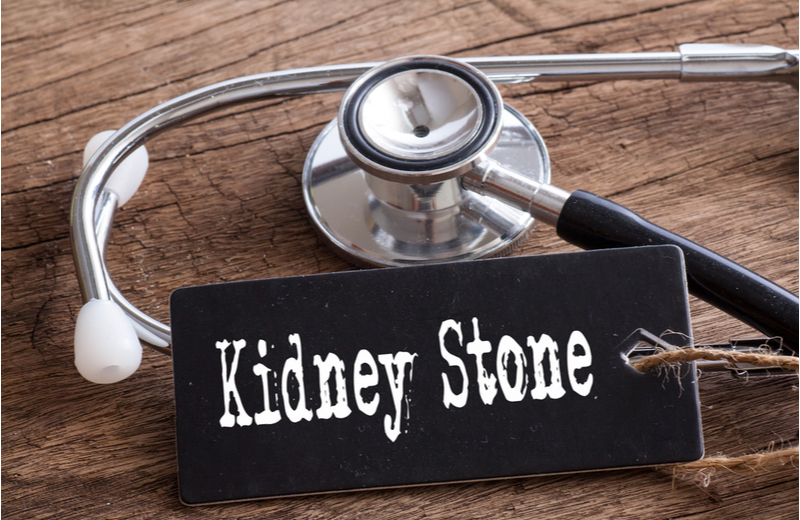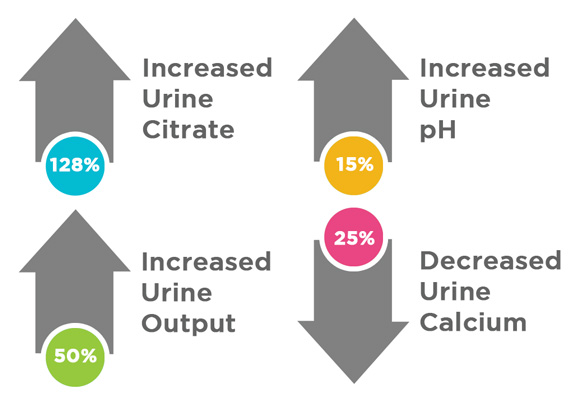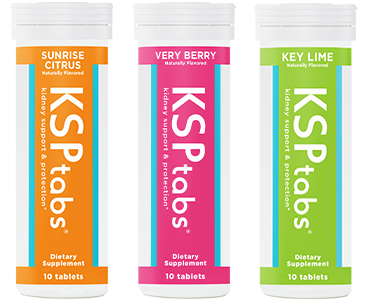
1 in 10 Americans will experience a kidney stone at some point in their life. Are you one of them? If so, your chance of having another one increases by over 50%. Kidney stones are formed by tiny crystals in the urine that build-up over time. The question that is most asked is, “What causes kidney stones?” Unfortunately, there’s not one specific answer. For most kidney stone formers or “stoners,” as we like to call them, multiple factors cause them to form stones.
Dehydration
Dehydration is the number one cause of kidney stones. Not everyone who doesn’t drink enough water will get a kidney stone, but your risk becomes high when you are consistently dehydrated. Hydration is simple, but we understand that it’s not always easy. When you aren’t hydrated sufficiently, your body doesn’t produce as much urine. That’s when your urine becomes concentrated with calcium and other stone-forming elements. If you notice that your urine is dark yellow, that’s your body telling you to drink more water. Our hydration rule of thumb is to drink half your body weight in ounces per day. You should drink even more if you live in a hot climate or exercise regularly. Our bodies usually give us warning signs that we need more water. These include dry mouth, headaches, fatigue, muscle cramps, and of course, dark urine.
Diet
When it comes to the formation of kidney stones, three factors in your diet play a significant role. High-protein diets such as keto have become increasingly popular over the past couple of years. This diet is great for weight loss. However, it increases your risk of kidney stones. High volumes of animal protein in the diet cause acidic urine and increased calcium and uric acid levels. Increased levels of sodium also play a role in the formation of kidney stones. High sodium intake increases the calcium concentration in your urine. Processed foods are usually the culprit, so it’s important to read food labels or stick to mostly whole foods. The last culprit in your diet is oxalates. Oxalates are found in many of the foods we eat regularly, such as spinach, kale, peanuts, and chocolate. It’s hard to believe that some of the healthiest foods can cause kidney stones, but it’s true. Usually, oxalates bind to calcium and expel through your stool. However, if the oxalates have nothing to bind to, they end up in your urine and can form calcium-oxalate stones. We have a blog discussing oxalates if you want more information and a list of high oxalate foods. If any of these three are part of your diet, hydration is key.
How do I know what is causing my kidney stones?
If you have had kidney stones and aren’t sure what is causing them, it’s essential to talk to your doctor about your lifestyle and getting a 24-hour urine analysis. 24-hour urine tests are not fun, but neither is having kidney stones. A 24-hour urine can tell you everything you need to know about the cause of your kidney stones. This test measures how much urine you produce in a day, the acidity (pH) of the urine, and the amount of certain substances in it, such as calcium, sodium, uric acid, oxalate, citrate, and creatinine. The levels of these substances attribute to stone formation. Citrate is the number one stone inhibitor, and if your body does not produce enough, you are at a high risk of stone formation. Once you have found the cause of your kidney stones, you and your doctor can discuss a strategic plan for prevention. The type of kidney stone you are forming can also help with determining the cause.
How Can I Prevent Them?
Some of you may be reading this and thinking that you have tried it all. You’ve changed your diet and drank more water, but you continue to get kidney stones. We understand how frustrating that must be, which is why our founder, Dr. Trotter, wanted to develop a product that encompassed the most important areas of kidney stone prevention; hydration and stone inhibitors. KSPtabs provide your body with hydration as well as the vitamins and minerals your body needs to combat stones. Adding KSPtabs to your water 2-3 times per day, along with adequate hydration, will reduce your risk of kidney stones dramatically. Below you can see the results of our study.


